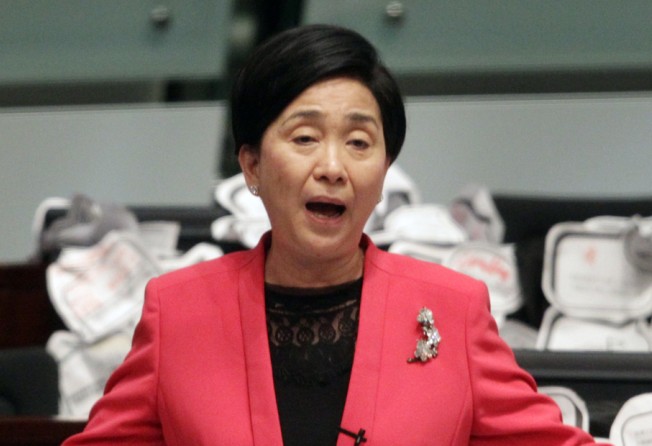Pan-democrats agonise over Shanghai invitation to discuss political reform

To go or not to go to Shanghai for talks with central government officials on political reform?
That is the vexed question facing pan-democratic lawmakers who are torn about what they should do as debate rages on the best way forward to achieve universal suffrage for the 2017 chief executive election.
At least seven of them, including four from the Labour Party and Democratic Party chairwoman Emily Lau Wai-hing, have vowed to boycott the trip, while Civic Party lawmaker Ronny Tong Ka-wah, who has called for dialogue with Beijing, wants the pan-democrats to seize the opportunity to close the rift with Beijing by joining the tour.
The pan-democrats will meet again tomorrow to decide on the invitation, after failing to reach a consensus on Friday.
The chairman of the National People's Congress, Zhang Dejiang, who heads the Communist Party's leading group on Hong Kong and Macau affairs, on March 6 set the parameters for the city's political reform by saying Hong Kong should not copy Western election models in implementing universal suffrage.
The state leader said Hong Kong's political reform must follow the track laid down in the Basic Law, adding that Western election models might become a "democracy trap" that causes catastrophic results.
His remarks were seen as effectively ruling out the call by pan-democrats for "public nomination" - allowing members of the public to put forward candidates for the 2017 chief executive poll.
"[From Zhang's warnings,] it seems like Beijing doesn't want to talk about reform at all, so why don't we focus on securing Hongkongers' support and getting prepared for Occupy Central?" Labour Party chairman Lee Cheuk-yan asked.
While Lee expressed scepticism about the talks, moderate pan-democrat Tong said it was expected that Beijing would not budge at this point. "But the invitation to visit Shanghai shows some sincerity. If the pan-democrats don't fight for an opportunity to exchange views in a relaxed atmosphere in Shanghai, there may not be a second or third chance," he said.
How the nominating committee should be formed and how it should put forward candidates for a popular vote are expected to be the key battlefields in the electoral reform process.
The pan-democratic camp has split into two factions: while the radicals insist on public nomination, Tong and the Democratic Party consider it more important that the reform package does not have a process to "screen out" dissenting voices.
The government must win a two-thirds majority in the 70-member Legislative Council to secure passage of any reform package, meaning it must win over some pan-democrats.
Tong has proposed a 1,500-strong committee that would include all district councillors. But his ideas are at odds with those of the Alliance for True Democracy - comprising Tong and 25 other pan-democratic lawmakers.
The alliance had earlier put forward a three-track proposal that would allow nominations from the public and political parties to be approved as a formality by the nominating committee.
Tong's colleague, Civic Party leader Alan Leong Kah-kit, is one of those who supports public nomination. Leong suggested that while he believed negotiations remained possible, it was time for the central government to table its own suggestions on the 2017 poll.
"There must be give and take on both sides," Leong said, though he added it appeared it was the pan-democrats who would have to do all the giving.
Cheung Man-kwong, a member of the Democratic Party's reform panel, said Zhang's strong words would not sway pan-democrats.
The ex-lawmaker and other Democrats took part in negotiations with the central government's liaison office in 2010 on political reform. The negotiation team was led by then Democratic Party chairman Albert Ho Chun-yan, and resulted in the passage of the government's reform package with the party's support.
But that meeting also drew the party into controversy, as the radicals condemned it for "betraying" Hongkongers and doing the government's bidding.
Four years on, Ho suggested that his party would still be willing to discuss practical issues like the composition of the nominating committee - but they would only do it "at an appropriate time".
Jiang Shigong, deputy director of Peking University's Centre for Hong Kong and Macau Studies, said moderate pan-democrats should have an incentive to forge a consensus with Beijing as they would be major losers if democratic development stalled in 2017.